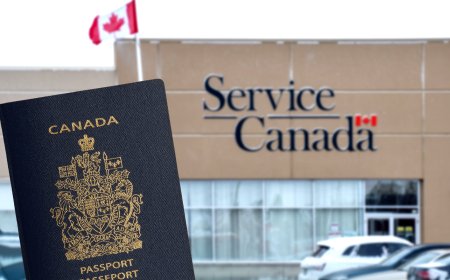How the 2025 Express Entry Changes Will Impact Your Immigration Journey
Discover Canada's 2025 Express Entry changes: new categories, CRS updates, and pathways for in-demand jobs. Learn how to prepare for evolving immigration needs.

Canada’s Express Entry system, a cornerstone of its economic immigration strategy, is set for transformative updates in 2025. These changes aim to better align immigration with labor market needs, promote linguistic diversity, and prioritize critical industries. Below is an overview of the proposed updates, their implications, and key insights to help applicants navigate the revamped system.
Highlights of the Proposed Updates
- Category-Based Draws: Targeted immigration streams for priority sectors and groups.
- Expanded Pathways: Enhanced opportunities for in-Canada applicants, such as international students and temporary foreign workers.
- CRS Adjustments: Potential modifications to the Comprehensive Ranking System to address new priorities.
These developments emphasize Canada’s commitment to a transparent and responsive immigration process.
Public Consultations and Key Insights
Engagement with Stakeholders
Between June 27 and July 28, 2024, Immigration, Refugees, and Citizenship Canada (IRCC) conducted consultations with a wide range of stakeholders, including employers, provincial governments, and the public. The insights gained were pivotal in shaping the Express Entry updates.
Key Recommendations
- Transition for Temporary Residents: Expanding pathways for international students and temporary foreign workers, recognizing their economic contributions and integration potential.
- Francophone Immigration Growth: Enhancing targets for French-speaking applicants, especially outside Quebec, to support linguistic diversity.
- Focus on Emerging Sectors: Addressing labor shortages in critical industries like clean energy, health sciences, and technology through specialized categories.
Revised Express Entry Streams
Starting in 2025, the traditional “Federal High Skilled” category will be divided into two distinct streams:
1. Federal Economic Priorities Stream
Focused on national labor market needs, this stream will allocate 41,700 admissions to occupations such as:
- Healthcare Professionals: Nurses, physicians, and allied health workers.
- Trades Occupations: Electricians, welders, and plumbers.
- STEM Professionals: Engineers, IT specialists, and data analysts.
- Francophone Immigrants: Supporting linguistic diversity.
2. In-Canada Focus Stream
With 82,980 admissions, this stream prioritizes transitioning temporary residents into permanent residents, addressing challenges like work permit expirations and limited pathways.
CRS Score Trends and Predictions for 2025
Lower CRS Scores for Priority Groups
- Healthcare and Trades: Scores could drop to 450 for targeted occupations.
- Canadian Experience Class (CEC): Projected cut-offs around 490, with increased invitation rounds for temporary residents.
Higher CRS Scores for General Applicants
For all-program draws, CRS thresholds are expected to remain high, around 540, reflecting increased competition.
Proposed New Category: Education Sector
A potential new stream focuses on addressing acute shortages in the education sector, targeting roles like:
- Elementary and secondary school teachers.
- Early childhood educators and assistants.
- Special education instructors.
Advantages for French-Speaking Educators
Bilingual candidates proficient in both English and French may find enhanced opportunities in this category.
Promoting Francophone Immigration Outside Quebec
Goals for 2025
- Increase Francophone admissions to 7% of all non-Quebec immigrants.
- Enhance cultural diversity while supporting workforce needs.
Eased Language Requirements
IRCC may lower the French proficiency requirement to CLB 5 or 6, making this pathway more accessible.
Targeting Emerging Industries
Canada’s economic priorities are shifting toward sustainability and innovation. Proposed updates may emphasize immigration streams for professionals in:
- Clean Technology: Renewable energy engineers and scientists.
- Biotechnology: Specialists in medical technology and biomanufacturing.
- Critical Resources: Skilled workers in mineral extraction for EV batteries.
Reevaluating LMIA Bonus Points
IRCC is considering eliminating CRS points for Labour Market Impact Assessment (LMIA) job offers to:
- Reduce fraudulent job offers.
- Level the playing field for applicants without Canadian job offers.
- Prioritize education, skills, and language proficiency over employment validation.
Recommendations for Applicants
- Align Your Profile: Target high-demand occupations in healthcare, trades, and education.
- Improve Language Skills: Boost proficiency in English and French to enhance CRS scores.
- Stay Informed: Monitor policy updates and new category announcements.
Conclusion: A New Era of Express Entry
The 2025 changes to Express Entry signify a forward-thinking approach to immigration, aligning policies with Canada’s evolving economic and social priorities. With category-based draws and a focus on critical sectors, the revamped system offers new opportunities for skilled professionals prepared to meet Canada’s needs.
Key Takeaway: Applicants should adapt their strategies to align with the upcoming changes, ensuring they are well-positioned to succeed in the transformed Express Entry landscape.
Tags:
What's Your Reaction?
 Like
0
Like
0
 Dislike
0
Dislike
0
 Love
0
Love
0
 Funny
0
Funny
0
 Angry
0
Angry
0
 Sad
0
Sad
0
 Wow
0
Wow
0






































































